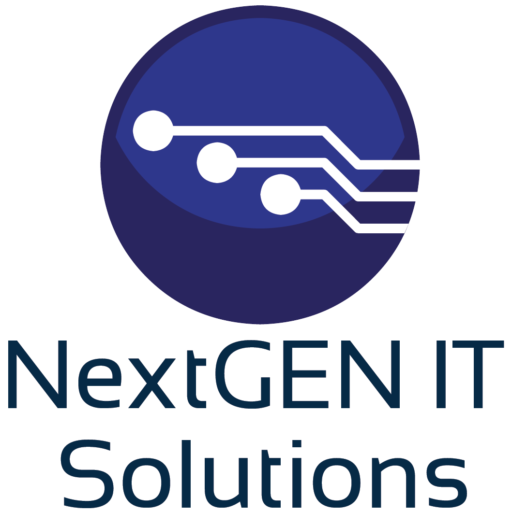Top 7 IT Compliance Mistakes Small Businesses Still Make in 2025

Top 7 IT Compliance Mistakes Small Businesses Still Make in 2025
Compliance isn’t just a big business problem anymore. Whether you’re a local healthcare clinic, a law firm, or a financial advisor, regulatory agencies are paying attention—and small businesses are under more scrutiny than ever in 2025.
The problem? Many SMBs are unintentionally violating rules they don’t even know apply to them.
At NextGEN IT Solutions, we help businesses stay compliant with standards like HIPAA, GLBA, NIST, and the FTC’s Safeguards Rule. Here are the 7 most common IT compliance mistakes we still see—and how to fix them before they become expensive problems.
1. No Written Information Security Program (WISP)
What’s wrong: Too many businesses think cybersecurity policies can live in someone’s head—or worse, a forgotten PDF. Without a WISP, you have no formal strategy for protecting sensitive data.
Why it matters: The FTC Safeguards Rule and GLBA now require a written plan showing how you manage data security, employee access, incident response, and risk assessments.
How to fix it: Work with your MSP (like NextGEN) to build a WISP tailored to your business, risk level, and industry regulations. We help clients create, update, and maintain their WISP as part of a holistic compliance plan.
2. No Multi-Factor Authentication (MFA)
What’s wrong: Relying on just usernames and passwords for email, client portals, or cloud apps.
Why it matters: MFA is now required for many compliance standards (including HIPAA and FTC) and is one of the most effective ways to prevent unauthorized access.
How to fix it: Enable MFA on:
- Microsoft 365 / Google Workspace
- Cloud backup portals
- EHR or financial software
- Remote desktop or VPN
We help our clients deploy MFA with conditional access to ensure it’s user-friendly and secure.
3. Unencrypted Backups and Sensitive Files
What’s wrong: Storing backup drives, customer records, or employee data without encryption.
Why it matters: If your data is stolen, unencrypted files are a breach under most regulations. That means required notifications, fines, and loss of trust.
How to fix it: Encrypt data at rest and in transit, and ensure all backup copies—local and cloud—are encrypted by default. NextGEN uses encryption standards that meet or exceed HIPAA, NIST, and GLBA requirements.
4. No Security Awareness Training
What’s wrong: Employees click phishing links, reuse weak passwords, or leave laptops unlocked—all because they’ve never been trained.
Why it matters: Employee error is responsible for more than 80% of data breaches. Most frameworks (HIPAA, GLBA, PCI) require ongoing cybersecurity training.
How to fix it: Deploy training tools that include:
- Phishing simulations
- Password hygiene modules
- Device security best practices
- Short monthly refreshers
NextGEN includes training and tracking for all user accounts in our managed compliance plans.
5. No Risk Assessment Performed Annually
What’s wrong: Businesses go years without evaluating their technology risks or vulnerabilities.
Why it matters: Regulations like HIPAA and GLBA require annual risk assessments and documented remediation efforts. Ignoring this puts you out of compliance—even if you have strong security tools.
How to fix it: Schedule an annual risk assessment with your MSP. At NextGEN, we:
- Perform full audits
- Identify technical and policy gaps
- Prioritize fixes based on risk
- Provide documentation for audits or regulators
6. Shared User Accounts
What’s wrong: Employees share logins for software or systems to “make things easier.”
Why it matters: Shared accounts violate most compliance rules and make it impossible to audit who did what in case of a breach or internal misuse.
How to fix it: Assign every employee a unique account, enable audit logging, and restrict access based on role. We help clients transition to secure, manageable user account structures without disrupting operations.
7. Thinking Compliance = Security
What’s wrong: Some businesses assume that passing an audit means they’re fully protected.
Why it matters: Compliance is the baseline—not the finish line. Many standards lag behind current threats, and being “compliant” won’t stop ransomware or data theft.
How to fix it: Pair compliance with a proactive cybersecurity strategy:
- Managed detection & response (MDR)
- Endpoint protection
- Email filtering and phishing defense
- Vulnerability scanning
- Real-time logging and alerting
At NextGEN, we combine both: ongoing compliance tracking + enterprise-grade security tools.
Bonus: What Happens If You Ignore Compliance?
Ignoring compliance can lead to:
- Fines up to $50,000+ per violation
- Lawsuits from clients or vendors
- Loss of data and reputation
- Contract cancellations with larger partners or insurers
- Mandatory breach notifications and PR damage
We’ve seen businesses lose deals because they couldn’t prove their compliance readiness.
Final Thoughts: Fix the Mistakes Before They Cost You
Regulators are paying closer attention to small businesses in 2025—and compliance is no longer optional. But the good news? You don’t have to handle it alone.
At NextGEN IT Solutions, we help businesses across Pennsylvania and beyond build strong, compliant IT systems that protect their data, reputation, and growth.
👉 Ready to review your compliance posture?
Contact us for a no-cost consultation or explore our blog for more cybersecurity and IT guidance.



